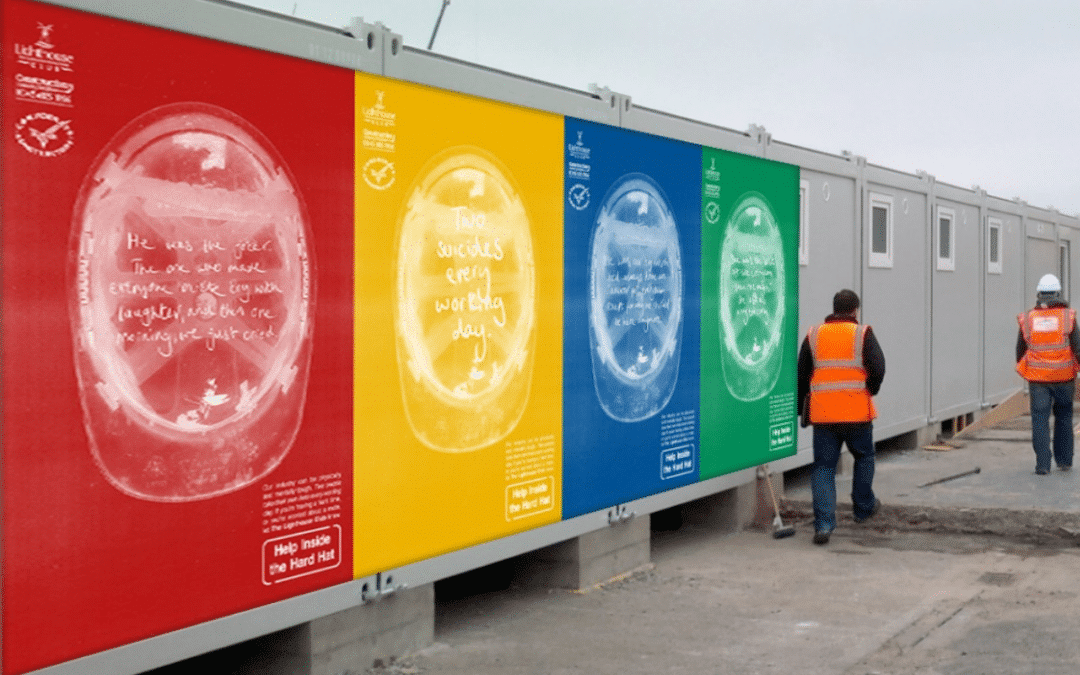
by Clair Mooney | May 13, 2021 | Main News Feed, Technical, Transformation
This information is for general background knowledge concerning government’s proposals with Building a Safer Future. Subject to parliamentary scrutiny government proposes to bring the changes into effect from 1 August 2021.
Responding to the announcement FIS Technical Director Joe Cilia stated: “FIS has supported the development of the Building Safety Bill and the Building a Safer Future work that preceded it –we are fully behind these changes, supportive of the approach and encouraged that finally things are progressing to implementation. As with any change there will be some wrinkles, but it is vital that, as a sector we use this regulatory change to drive the ongoing cultural reform that we know construction needs. If members have any comments or questions that they want us to consider and feed in or around how these changes are likely to impact their work, don’t hesitate to get in touch”.
Building safety: Planning Gateway One
Following its consultation in June 2019 on proposals for reform of the building safety regulatory system, the government’s response published in April 2020 set out their plans for change. This involved the introduction of three gateway points which relevant developments / buildings must go through. Currently, relevant buildings are those which are 18m or higher or 7 or more storeys, whichever is reached first, and contain two or more dwellings or educational accommodation.
This has to demonstrate that the planning application incorporates thinking on fire safety.
- Gateway two (Technical design & construction phase)
A building control application will be required, so this gateway provides a hard stop where construction cannot begin until the Building safety Regulator has approved the building control application.
- Gateway three (Current building control completion / final certificate stage)
Provides a hard stop at which the Building Safety Regulator undertakes final inspections and issues a completion certificate. Prescribed documents and information on the as-built building will be required. Information must be handed over to the person9s) responsible for the building in use.
More information on Gateway one
This has two elements:
- Requires the developer to submit a fire statement setting out fire safety considerations specific to the development with a relevant application for planning permission for development which involves one or more relevant buildings, and
- To establish the Health & Safety Executive as a statutory consultee for relevant planning applications.
These requirements will be introduced via secondary legislation.
The fire statement must be submitted on a form published by the Secretary of State – see attachment for a draft fire statement form. (Click here view draft fire statement guidance). The questions to be answered will include information on:
- The principles, concepts and approach relating to fire safety that have been applied to each building in the development
- Site layout
- Emergency vehicle access and water supply for firefighting purposes
- What, if any, consultation has been undertaken on issues relating to the safety of the development and what account has been taken of this
- How any policies relating to fire safety in relevant local development documents have been taken into account.
Fire statements will be required to include information on the entire development site as set out on the plan which identifies the land to which the application relates.
How are the fire statements different from the requirements of building regulations or the Fire Safety Order?
The fire safety matters contained in a fire statement are relevant only to the extent they are relevant to land use planning. The level of detail and focus of information should not contain the breadth and depth of information on fire safety which will be submitted at building control application stage. Requirements of the fire statement at planning stage will not duplicate or require compliance with the building regulations or the Fire safety Order and local planning authorities will not be responsible for any building regulation matters or the enforcement of building control requirements.
Change of use applications
Applications for permission for a material change of use of land or buildings will require a fire statement unless the application is for:
- A material change in use of a relevant building and the material change of use would result in the building no longer being a relevant building
- A material change in use of land or buildings within the curtilage of a relevant building.
Consultation between local planning authorities and HSE
A local planning authority is required to consult HSE before granting planning permission for:
- Developments which will involve or is likely to involve the provision of a relevant building
- Development of an existing relevant building except where the development consists of a material change in use of a relevant building which would result in a building no longer being a relevant building
- Development within the curtilage of a relevant building in the case of development consisting of a material change in use of land or building within the curtilage of the building.
A local planning authority must consult HSE on fire safety before granting permission to develop land without compliance with conditions if the authority considers it appropriate to do so.
For more information on Planning gateway one please click here.

by Clair Mooney | May 13, 2021 | Main News Feed
This week marks Mental Health Awareness Week. Research by CITB has shown that almost all construction workers have experienced stress in the last year, and more than a quarter have experienced suicidal thoughts. FIS reported on the growing concerns for mental health on 29 January 2021 emphasising the training and support available for FIS members.
The focus for this week to improve and support good mental health is being close to nature, it won’t cure all problems, but it can help put things in perspective, take the pressure off and bring calm to daily lives. Even just looking at wildlife, trees and plants from a window can help, although a walk exposes our senses to more of the nature around us.
CITB has published a story from Andy Stevens, a self-employed builder who hit rock bottom but who has since recovered “This has to stop. Too many people are struggling, I hope my story can help.” You may find some parts of his powerful story familiar from your own experiences or those of colleagues.
Please take the time to find out about free help for you and those you work with, detailed below.
While the largest employers might offer support to workers, smaller companies and sole traders may not know how to access free assistance that’s available. CITB is funding an initiative to help resolve this by providing accessible and consistent mental health support for everyone working in construction, including a standardised approach across the industry. They also fund The Lighthouse Club charity to provide support, which has trained nearly 5,000 mental health first aiders in the construction sector who have helped around 6,300 people so far.
The Lighthouse Club delivers charitable, financial and emotional support to the construction industry. If you would like to apply for financial or wellbeing support you can either call their 24/7 confidential Construction Industry Helpline on 0345 605 1956 in the UK, and 1800 939 122 in Ireland, download the helpline app (External link – Opens in a new tab or window), or submit your application online here (External link – Opens in a new tab or window).
If you feel your organisation needs to train and qualify someone with skills to support you employees FIS will be happy to assist, give us a call on 0121 707 0077 or email info@thefis.org.

by Clair Mooney | May 12, 2021 | Main News Feed
The Queen’s Speech marks the start of the Parliamentary year, it is delivered by the Queen, but written by Ministers and identifies priorities in terms of laws that it wants to pass through the house and vote on this year. This year the Government has identified 31 bills that MPs and peers will be asked to scrutinise and vote on over the next year. Inclusion in the Speech doesn’t necessarily mean it will automatically become law, but the Government has a strong majority and through the Parliamentary process these bills will be scrutinised and adapted.
The themes in the speech reaffirm commitments to build back better, cleaner and greener with Net Zero Strategy central, seizing opportunity from exiting the EU, driving investment and levelling up with a view to strengthening the Union.
Below we look at the areas that will have the most significant impact on businesses in the construction industry and the finishes and interiors sector.
Planning bill
This has been billed as the biggest shake-up of the planning system in decades. Whilst we have heard this statement by successive Governments, the bill does mark a fairly fundamental change as under proposals local planning authorities would no longer have the powers to turn down housing developments if they meet set standards. The Bill also forces local authorities to set new zones for housing. This Bill is already getting opposition from within the Conservative Party, so is by no means a done deal yet.
Skills and Post-16 Education Bill
The Government is planning landmark reforms for the delivery of skills and training with a focus on ensuring that people can train and retrain at any stage in their lives. Central to the Bill is introducing a right to government-funded training for all adults lacking A-levels or a qualificaion of equivalent value. The Bill will also extend the student loan system to those who want to study at local further education colleges. All adults will be entitled to four years’ worth of loans for training or education that can be taken at any point in their life.
Building Safety Bill
Government continues to press ahead with reshaping the regulation and enforcement that impacts building safety, this includes changes to the Building Regulations, new regulators and particular scrutiny on the safety of high-rise buildings and inspections of buildings under construction in the wake of the 2017 Grenfell Tower disaster.
Environment Bill
Provides a regulatory framework to impose, adapt and absorb elements previously covered under EU directives. The Bill allows Government to set legally binding targets, restore nature and biodiversity, tackle air pollution, establish an independent Office for Environmental Protection, cut plastic use and includes particular reference to “revolutionising” how we recycle.
Subsidy control bill
State Aid rules are no longer Governed by the EU (although are referenced in the Trade Agreement). This Bill will enable Government to write legislation to establish a state aid regime in the UK that helps to accelerate recovery.
An independent body will be established to help government ensure intervention reflects strategic interests and National circumstances without breaching the terms of the trade and co-operation agreement with the EU.
Freeports bill
Again aimed at driving investment and regeneration at the same time as supporting trade, this Bill will allow Government to establish the legal framework for initially eight freeports: Teesside, London Gateway, Liverpool City Region, Humber, Felixstowe, Southampton, Plymouth and East Midlands airport. Discussions continue between the UK Government and the devolved administrations to ensure the delivery of further Freeports in Scotland, Wales and Northern Ireland as soon as possible.
Businesses within Freeport areas will benefit from more generous tax reliefs, simplified customs procedures and wider Government support.
Procurement bill
This Bill is designed to consolidate and streamline the 350 plus EU derived regulations and make our procurement regime quicker, simpler and easier to use, allowing more freedom for suppliers and the public sector to innovate and work in partnership with the private sector. The Bill crystalises that “social value” must be considered a factor in the picking of suppliers (in keeping with the philosophy of the Construction Playbook).
Professional qualifications bill
Provides a new bespoke framework for the UK to recognise professional qualifications from across the world to ensure employers can access professionals where there are UK shortages. Whilst targeting the need to help fill skill shortages after Brexit, it is unlikely to have much impact on trade operative end of construction, but is more targeted at occupations like medicine and teaching, and will provide some freedom in the Engineering, Architectural and Surveying end of the market.
Advanced Research and Invention Agency Bill
This is likely to drive investment as the Government focusses on making the UK a global science superpower by developing our Life Sciences sector to attract the best people and businesses from across the world, increasing public expenditure on research and development to £22 billion; and creating the Advanced Research and Invention Agency focused on funding highrisk, high-reward research and development.
Registration of Overseas Entities Bill
It is clear that International Investment will be critical to support growth, but more control is required. This Bill is about transparency and ensuring foreign owners of UK property are no longer able to conceal their identity: a register of beneficial ownership will be set up to crack down on tax evasion.
The Speech also highlights a number of Funds designed to support investment in change these include:
Future Fund: Breakthrough
The £375 million, UK-wide ‘Future Fund: Breakthrough’ scheme will target innovative, R&D-intensive firms and provide them with the capital they need to grow and succeed.
Levelling Up Fund
The £4.8 billion Levelling Up Fund will invest in infrastructure that improves everyday life across the UK, including regenerating town centre and high streets, upgrading local transport, and investing in cultural and heritage assets.
UK Community Renewal Fund/ UK Shared Prosperity Fund (UKSPF)
The £220 million UK-wide Community Renewal Fund will provide funding for local areas across the UK in 2021-22 to help them prepare for the introduction of the UK Shared Prosperity Fund, in addition to the continued high level of funding from EU structural funds.
Towns Fund
Through the Towns Fund the Government has confirmed a £1 billion investment in 45 Town Deals across England, which will help local areas to grow their economies, create and sustain local jobs whilst encouraging opportunities to reshape the look and feel of their area.
National Skills Fund
The Government is investing significant amounts into further education – £1.5 billion to improve our college estate; £2.5 billion (£3 billion when including Barnett funding for devolved administrations) in the National Skills Fund; and £650 million extra into 16-19 further education
Commenting on the speech, FIS CEO Iain McIlwee stated: “As expected, this is a Queens Speech packed full of optimism, all about a fresh start outside the EU and building back after COVID. The focus on Skills is particularly encouraging – we now need to ensure that construction is a key beneficiary of this. The Planning reform is also a good sign of a Government recognition that construction activity is key to growth and hampered by red tape and nymbyism, but I suspect it will be a while before the sector sees the full benefit of this reform as it meets opposition in the House. My sincere hope is that the Building Safety Bill is passed this side of the summer recess so we can crack on with the much needed reform that it heralds.”
Full details of the Queens Speech including a transcript and supporting information is available here.






